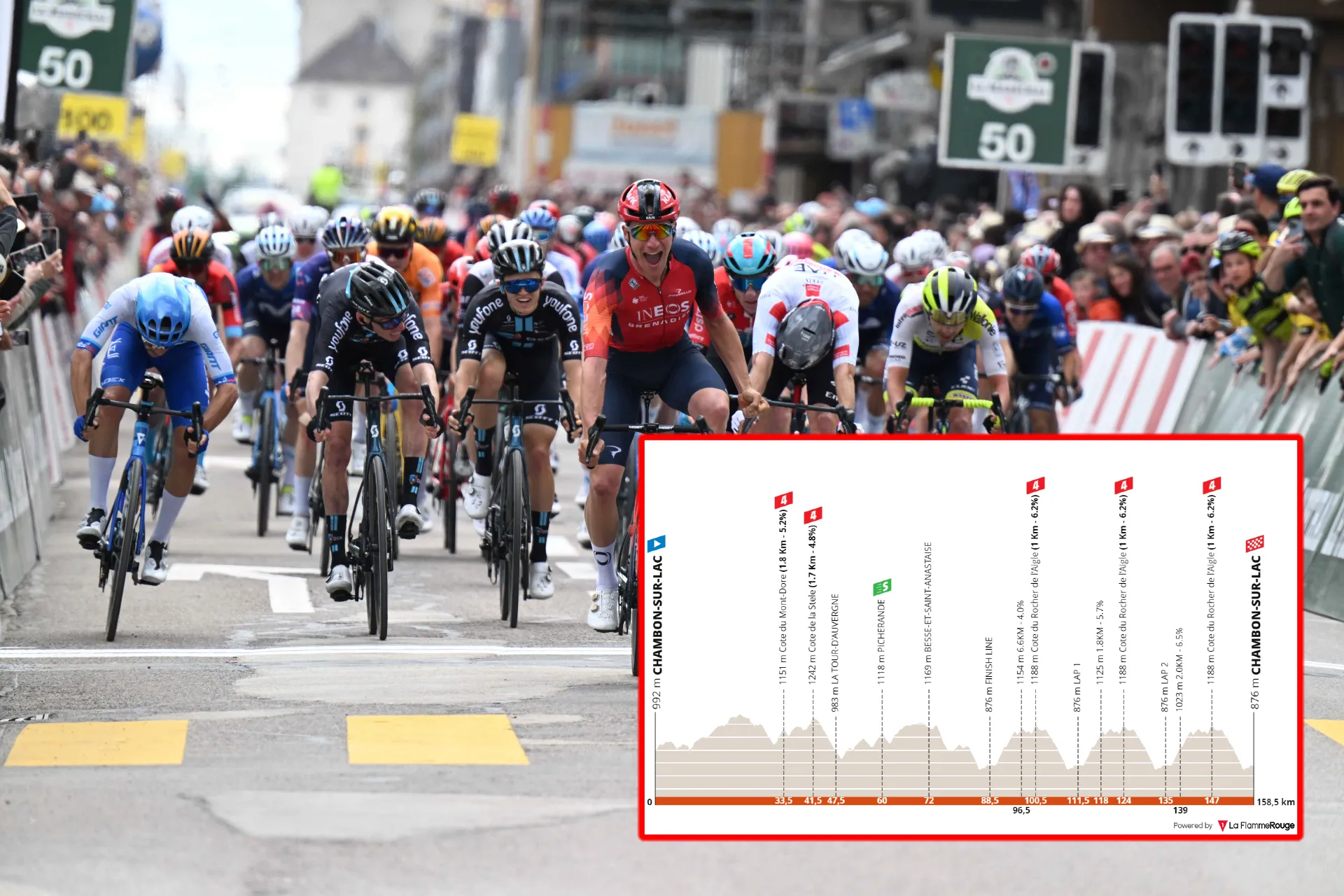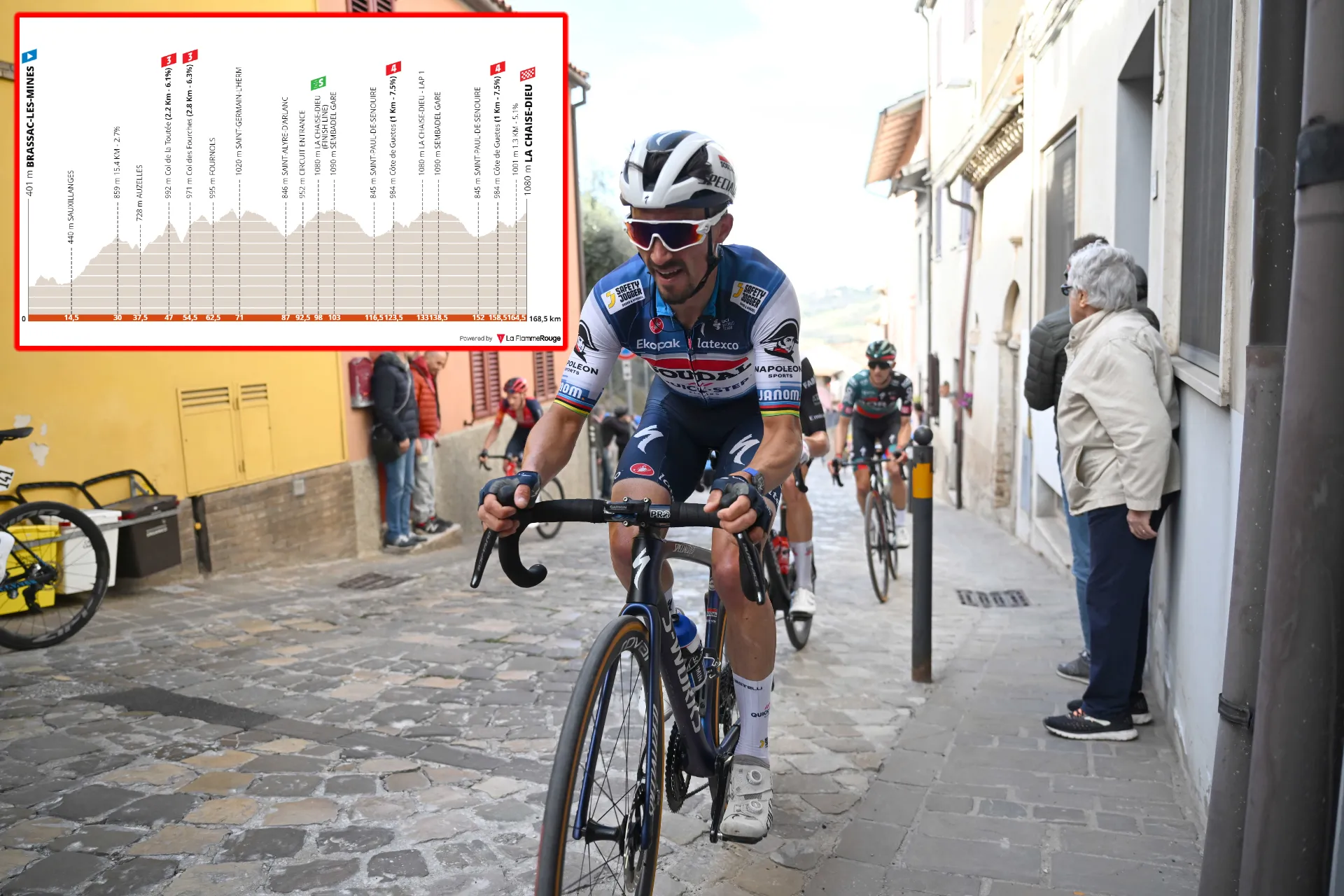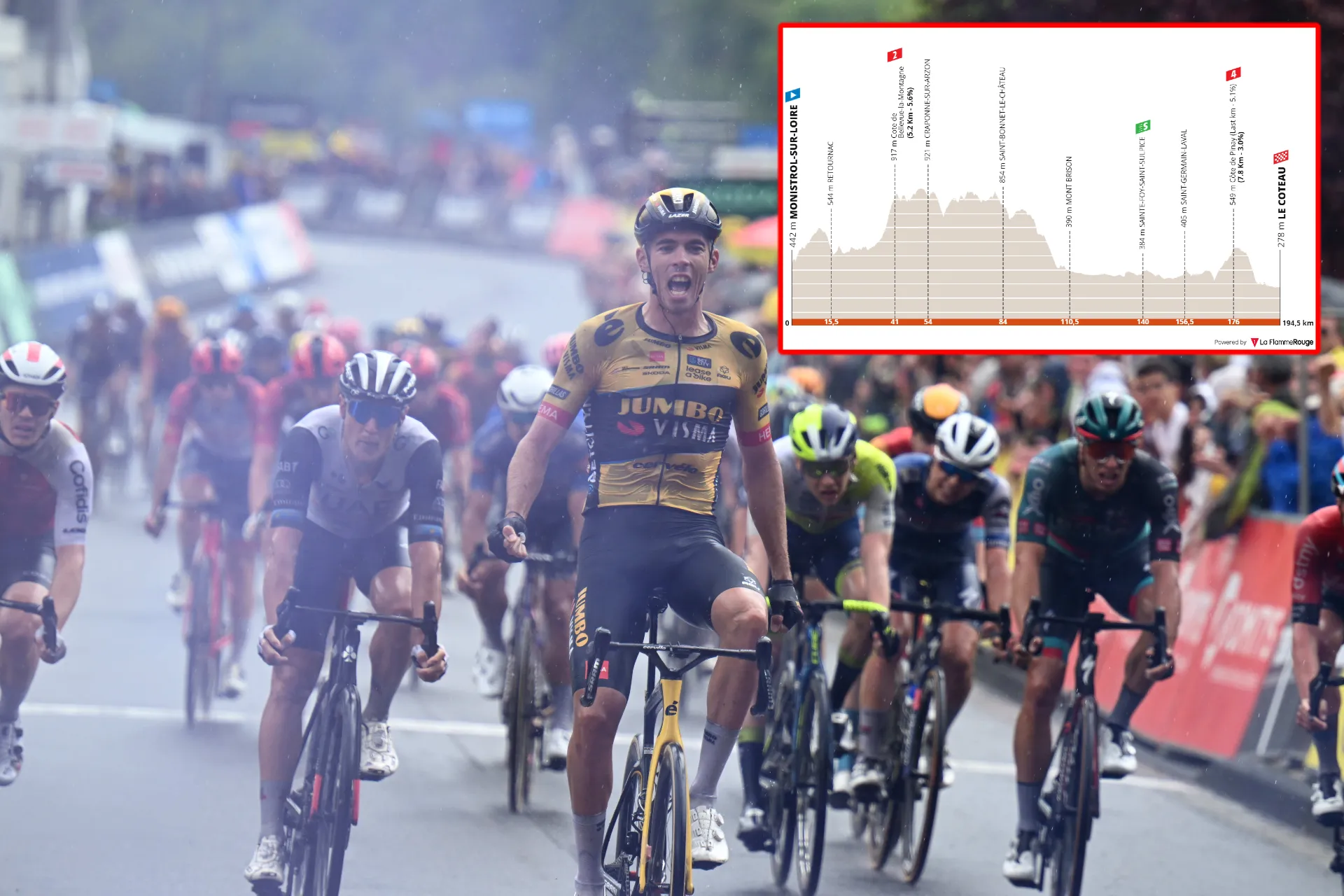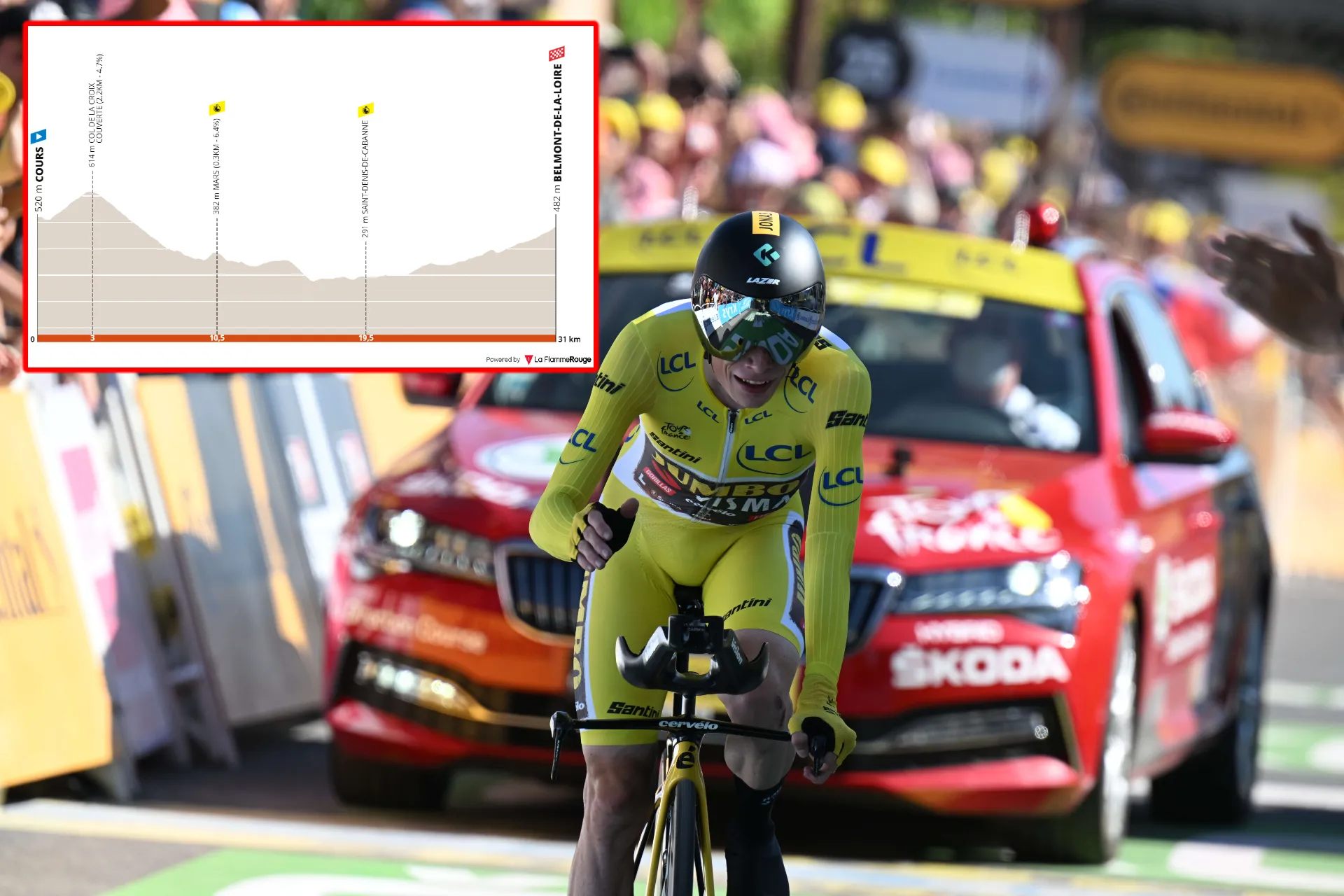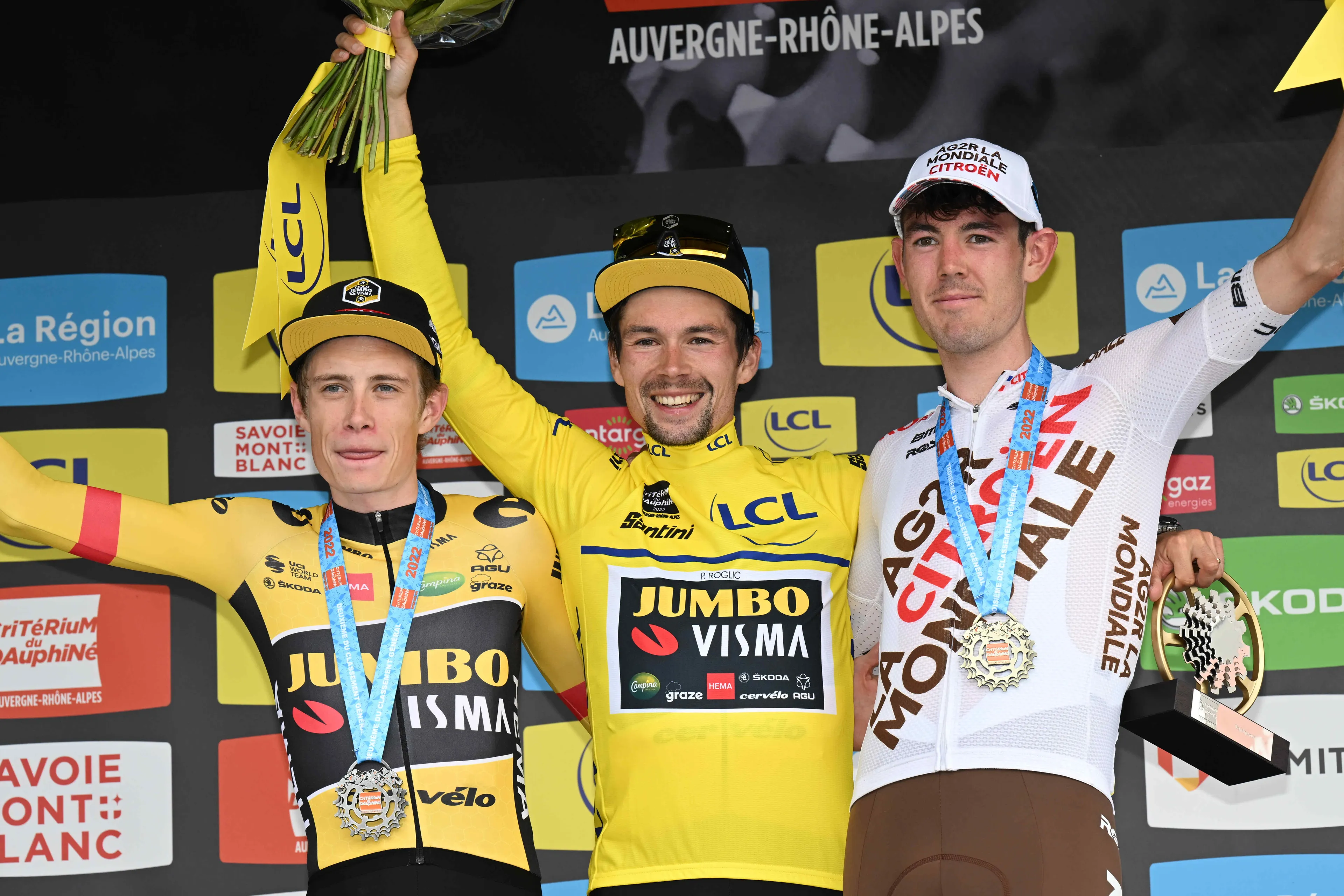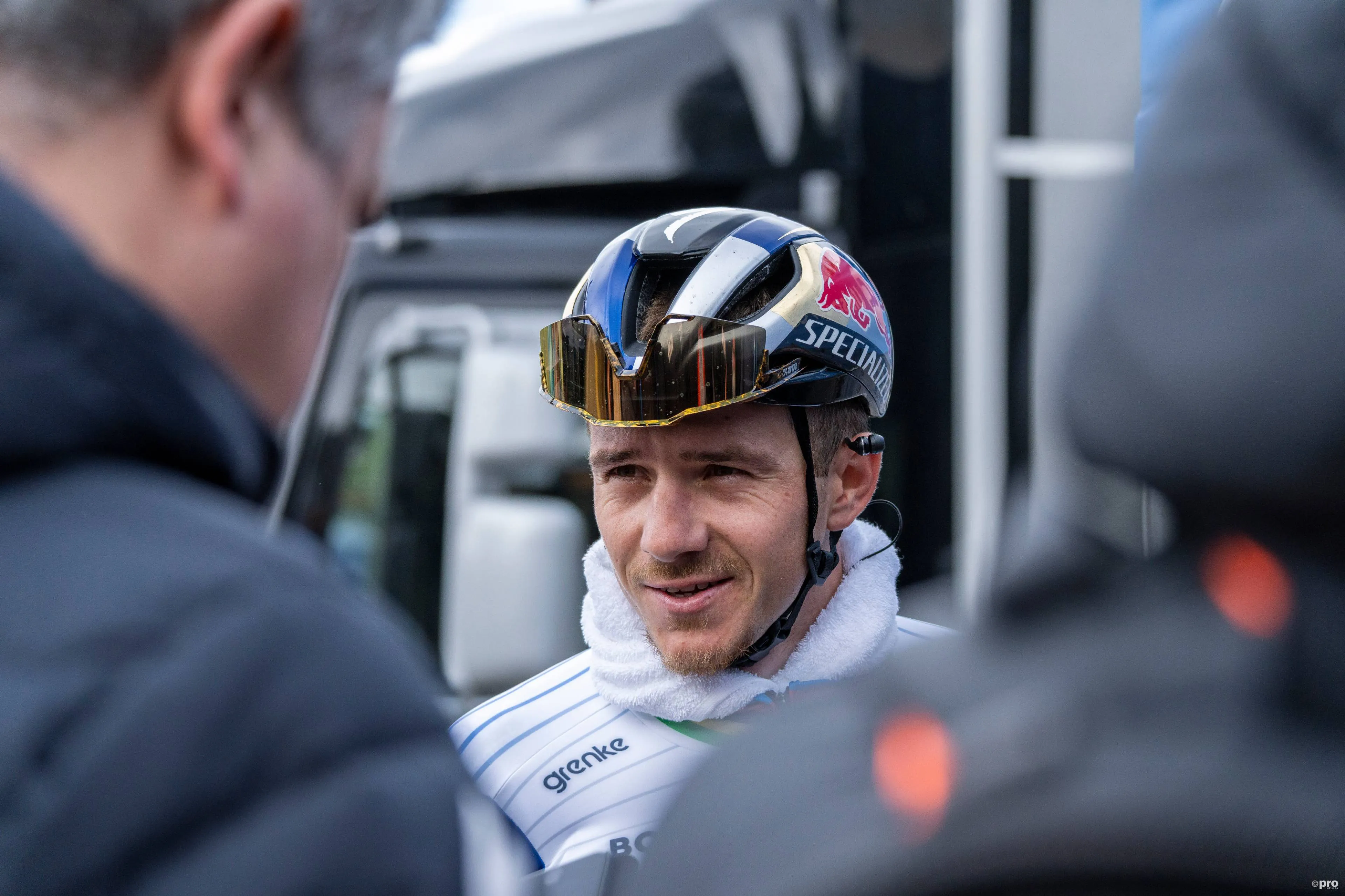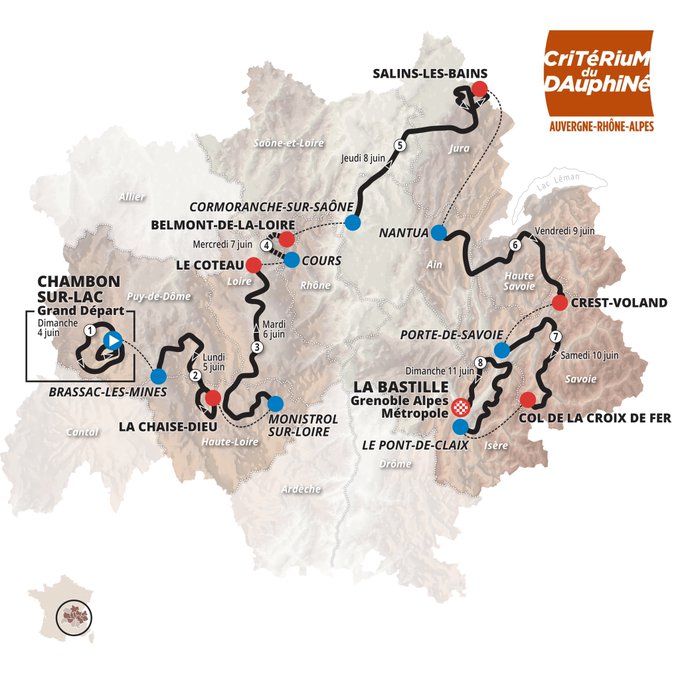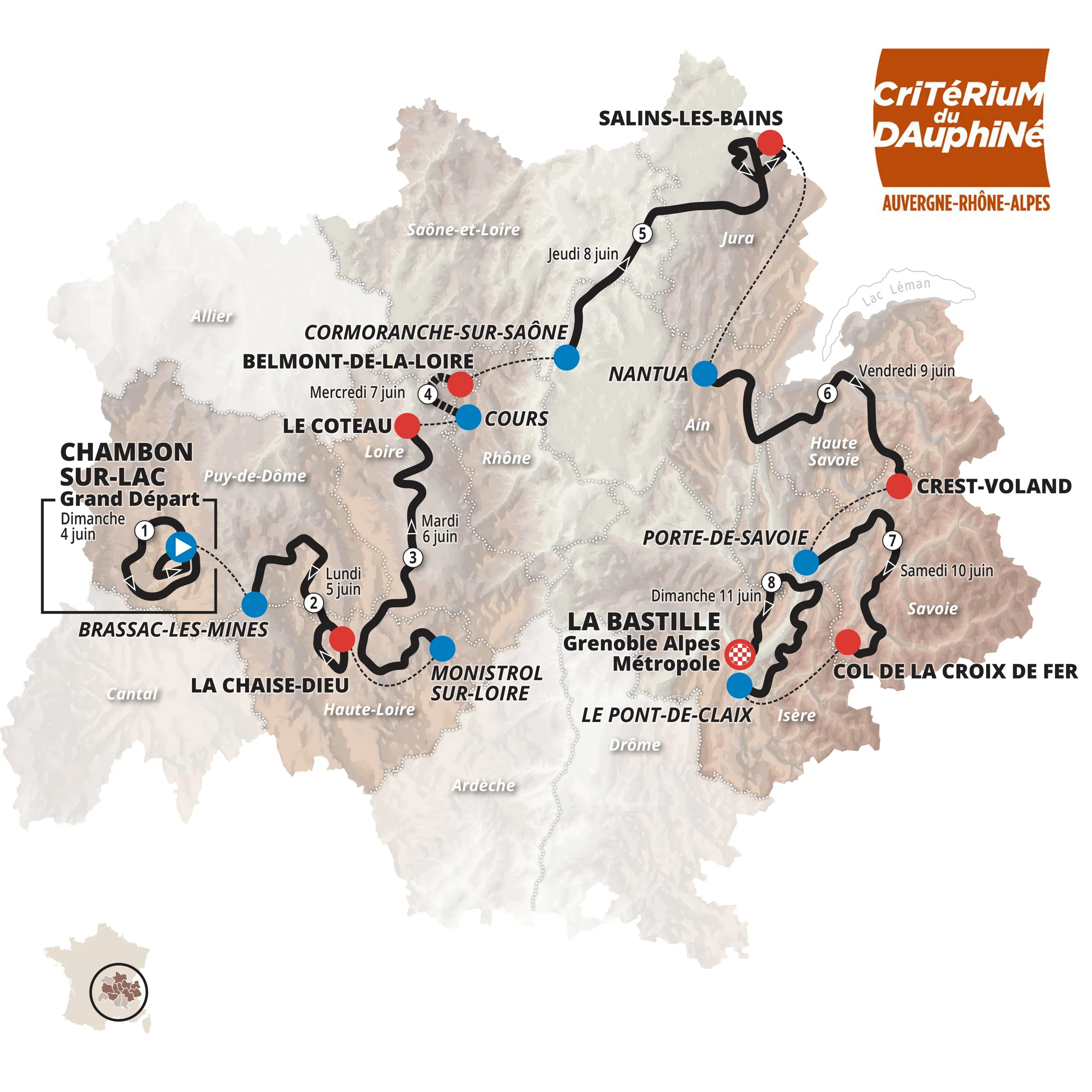
Profiles. Many times termed the main preparation race for the Tour de France, the Critérium du Dauphiné will be specially hilly in 2023. The French race will take place from the 4th to 11th of June and will include several big tests for the Tour de France contenders to test their form ahead of a big goal.
The eight-day race follows a traditional format, with the stages increasing in difficulty throughout the week. The race opens up with two stages where sprinters, puncheurs and classics riders can succeed, follow by the only day where a bunch sprint can realistically take place. Stage 4 will be an individual time-trial, followed by two more hilly stages where the fights for victory will be open. It will be on the final weekend, the two last stages which see high-mountain terrain where the overall classification will be decided.
Read also
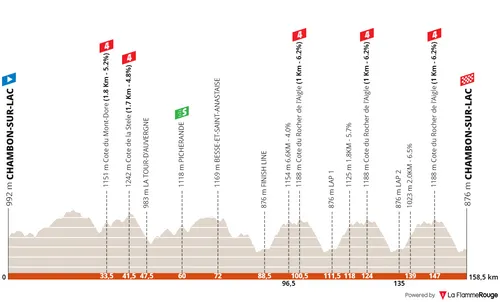
Stage 1: Chambon-sur-Lac - Chambon-sur-Lac, 158.5 kilometers
The opening stage of the French race will be a hilly day, very open where several types of riders can succeed. It's a short and explosive stage taking place at high altitude. There will be 2700 meters of climbing in a day that isn't exactly suited to any particular type of rider, and is very open. Breakaway win, late attacks or a reduced group sprint are all very possible scenarios.
The stage has a relatively flat start, but the entire day - taking place in the Massif Central - has a "rompe-piernas" feel to it (if it were taking place in Spain). The riders never find truly pan-flat roads, it constantly either tilts up or down a bit, this will certainly weigh on the legs of the sprinters, and making breakaway chase a little harder.
The riders will take on three laps of the final circuit into Chambon-sur-Lac. It's main feature is the ascent of the Côte du Rocher de l'Aigle which featues around 4.5 kilometers at 5%. The climb doesn't end there as it then has rolling roads all the way into the summit which is located only 11.5 kilometers from the finish.
A fast descent follows which leads the riders into the final 3 kilometers, which will be flat but short for those who want to chase into a sprint in town.
Read also

Stage 2: Brassac-les-Mines - La Chaise-Dieu, 168.5 kilometers
Stage 2 sees another hilly day, most of it at around 1000 meters with a lot of rolling roads. It's another grueling day, without any serious climbing but packed with small ascents and rolling roads. A day for breakaways or classics riders to succeed, with the GC contenders also having to pay serious attention or even chase bonifications. The day sees climbing start early on, and then it follows a consistent pattern of small and big-ring ascents.
As is the case on the opening day, the finale also takes place in a hilly final circuit. This time around the final kilometers are uphill however. With 10.5 summits a 1Km climb at 7.5% which is categorized, a small descent then follows before the uphill drag into La Chaise-Dieu.
Although not categorized, it is a hilltop finish. 4.7 kilometers at 3%, hard enough to make some selection, but easy enough to see some fast men resist. It's an ascent with several restbite sections, but that also means the uphill sections are much steeper then the average, but 7% won't be scaring everyone. The final 500 meters flatten out, and this does favour those with the raw power when it comes to sprinting.
Read also
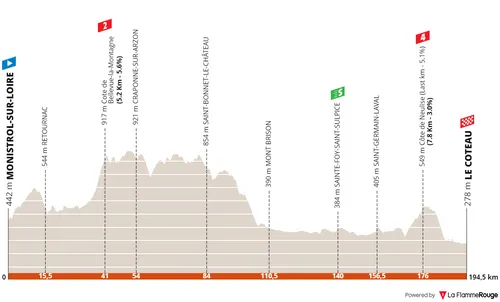
Stage 3: Monistrol-sur-Loire - Le Coteau, 194.7 kilometers
Stage 3 is the one where the sprinters have their best chances. Along 194 kilometers the riders will have a rolling stage, but this one more likely to finish in a bunch sprint. That won't be a certainty however, the opening kilometers go uphill, and the first half of the stage are rather hilly. However from there on things do get easier to control.
The clear obstacle which riders will be eyeing is the Côte de Neulise which is 7.8 kilometers long at 3%. It isn't a hard ascent, but it does steepen a bit more towards it's summit, and with the end only 18.5 kilometers away from the finish it can give some riders or teams ideas.
A short descent follows before a flat run-in into Le Coteau. One for the pure sprinters if they survive, it'll be a tense and fast sprint, with noteworthy corners coming with 2.1, 1.1 and 800 meters to go. From there on it's a full launch into the town center where there will be no opportunities to surprise the fast men.
Read also
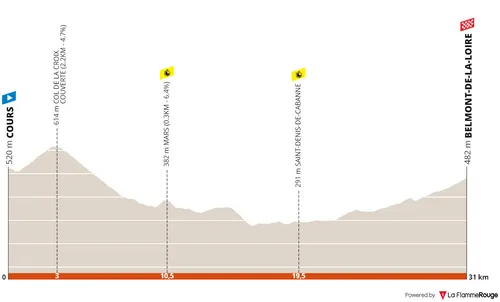
Stage 4 (ITT): Cours - Belmont-de-la-Loire, 31.1 kilometers
Stage 4 is the race's individual time-trial. Comparing to the Tour de France, this day alone sees more kilometers against the clock than in the Grand Tour. Here there will be 31 kilometers, not pan-flat but mostly without tough gradients.
It's not an easy task in any way, and most of all pacing will be hard to gauge, the riders do face a difficult one to measure. There is a 2.2-kilometer climb at 4.7% almost at the start of the time-trial, which then follows a gentle descent where the riders do lose more than 300 meters in altitude.
They will regain many of them towards the line. It isn't a categorized climb, and you would barely call it a climb, but it exists. The final 9 kilometers have an average gradient of 2%, in some sections - including the final 3 kilometers - going over that. It will make a difference, specially in a day where gaps can be small among the best and the overall classification will be at stake.
Read also
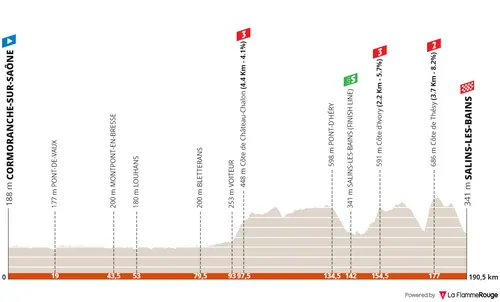
Stage 5: Cormoranche-sur-Saône - Salins-les-Bains, 190.6 kilometers
Stage 5 sees the peloton return to it's hilly challenges. As the main stages lay ahead it should be a conservative affair. The riders finally get the pan-flat start they would've hoped for in the first days of the race, however ironically it comes in a day where a breakaway is likely to succeed and will have problems forming itself early on.
The climbing phase of the day begins with just under 100 kilometers raced, with a 4.4-kilometer climb at 4.1%. There isn't anything meaningful worth mentioning until a second categorized ascent which is 2.2 kilometers at 5.7% which summit with 36 kilometers to go. A plateau then follows leading up to the main obstacle of the day.
That is the Côte de Thésy, 3.7Km at 8%, whilst it's first half is mostly at around 10%. An explosive climb. The GC riders may opt not to risk due to the hard finale of the race but it is hard enough to explode the race, if not still, the stage can very well be decided with an attack here at some point. It ends with 13.5Km to go, there is a gentle rise shortly after a descending patch, but it's then all downhill until 1 kilometer to go, and the finale in Salins-les-Bains.
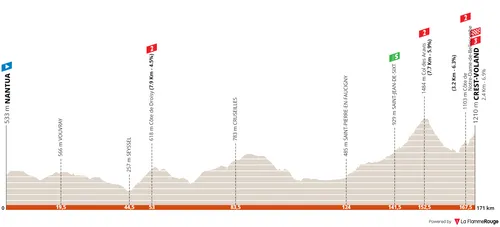
Stage 6: Nantua - Crest-Voland, 171.3 kilometers
Stage 6 has the peloton ride into the Alps. It's not a high-mountain stage, rather a warm-up. It's another stage that suits the puncheurs or riders who come in with hopes of netting an important stage win, having as a backdrop the mountains which will in the coming days decide the race.
A short day into Crest-Voland, it features three categorized climbs towards the end: 7.8Km at 5.7%, 3.2Km at 6.1% and then a summit finish with 2.3 kilometers averaging 6.6%. The first of which is the scenic Col de Aravis, which is an 8-kilometer climb but from it's very base will see the riders climb over 1000 meters in altitude. This one summits with 19.5 kilometers to go, close enough to the finish to see serious attacks.
Whether it is in the peloton or breakaway, attacks may surge there as it is almost completely downhill into the final explosive ascent. Another one perfect for the puncheurs who can surge in these short efforts. The finale into Crest-Voland is a combination of two small yet constant climbs: 3.2Km at 6.1% finish with 3.5 kilometers to go, and after a small descent the riders have another ramp of 2.3 kilometers averaging 6.6%, this one straightforward and difficult to attack. The very final meters flatten out to the finish line.

Stage 7: Porte-de-Savoie - Col de la Croix de Fer, 149.5 kilometers

Col de la Croix de Fer: 13Km; 6.1%
The queen stage? Perhaps, it is the great summit finish of the Dauphiné this year and it takes the riders through a journey in the Maurienne valley's climbs. A short day on the bike with a pan-flat start, but it does then feature three long and hard climbs which add up to 4000 meters of climbing.
First off we've got the Col de la Madeleine. 24.8 kilometers at 6.1%, summit at almost 2000 meters of altitude, 73 kilometers to go and irregular gradients. Two gentle sections in the climb mean much of it is ridden above the 6% mark. It's a tough old climb, maybe not it's hardest vertent but certainly one that will cause quite a lot of damage in the peloton.
The day will however be decided later on, the Col du Molard will have it's longest vertent raced with with 18.5 kilometers at 5.8%. This climb will mostly serve as a warm-up for the final one as the proximity is so visible, however it's another long one but mostly an explosive one. There are 43 hairpins in the first 12 kilometers, it puts the Alpe d'Huez to shame if those where the only standards. The rest of the climb isn't as hard but my no means a gentle ride.
However it will be the final climb to Col de la Croix de Fer where the main attacks are expected. It's a climb of two halves, with the final kilometers significantly harder. It is a summit finish at over 2000 meters, the ascent has 13 kilometers at 6.1% average gradient.
It's a climb well known to the Tour de France, however having a finale at it's summit this year. It is also in it's toughest vertent to end the stage, the GC riders will save as much as possible in the day certainly to then have the legs for the final 6.4 kilometers, which besides the altitude, also average over 8% in exposed roads.

Stage 8: Le Pont-de-Claix - La Batille (Grenoble Alpes Métropole), 153.2 kilometers
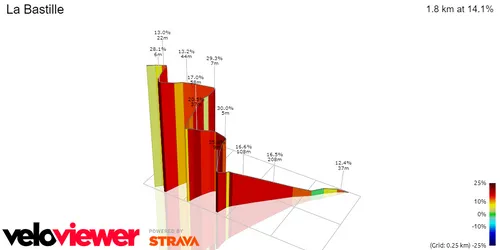
Montée de la Bastille: 1.8Km; 14.2%
The final day of racing is a very tough one, and a classic day for the Critérium du Dauphiné, with a very hard and explosive start where a GC raid is possible and a very strong group is likely to go up the road. It's a Dauphiné classic, to end the race with an explosive day which features several climbs but no apparent point of attack. Ideal for aggressive racing, the start is uphill but not deadly - 6.1Km; 5.8% - but the opening hour of racing barely sees any flat road.
There will be three main climbs towards the end of the day with the Col du Granier being the thoughest - 9.6Km at 8.6%. This one opens up the true climbing on the day, it summits with 48 kilometers to go, the three ascents are all back-to-back with no flat sections inbetween at all. The Col du Cucheron follows, it's 7.8 kilometers at 6.1% and ends with 30 kilometers to go.
Perhaps the riders will wait for the Col de Porte to make a move, it is another possible location to attack. It's 7.5 kilometers at 6.6%, not the toughest of climbs but the legs will be hurting already at the base. It ends with 17 kilometers to go, 15 of them a steep and fast descent straight into the hilltop finish.
A long descent will follow into Grenoble. Although it almost appears invisible in the profile, the finale is one of the steepest of the whole year. Not unknown, it's the climb to La Bastille which averages 14% for 1.8 kilometers, and the gradients go well over 20% in sections. The road signs, alongside the created profile hint at 30% maximum. It's vicious regardless of that being correct or not, it's a proper end to the race, with the views over an Alpine metropolitan area.
Estimated start and finish times for Criterium du Dauphiné:
Stage 1: 13:10-16:45CET
Stage 2: 12:40-16:25CET
Stage 3: 12:10-16:25CET
Stage 4: 13:30-16:35CET
Stage 5: 12:05-16:25CET
Stage 6: 12:20-16:25CET
Stage 7: 10:40-14:35CET
Stage 8: 10:30-14:35CET
Read also
claps 1visitors 1
Just in
Popular news
Latest comments
- You need to get out moreJezla18-02-2026
- Ego and self regard are at the center of most human folly.TheOlderIGetTheFasterIWas18-02-2026
- You can't win 'em all. These early season races at this level are good because it shows where you are weak and need work.awp18-02-2026
- This is what I wrote 12-02-2026 10:00: "As far as I'm convinced, Remco still has "zero" wins. I invite Remco to stop in Siena to meet his Slovenian master, Pogi the G.O.A.T... but no, it's better to run away and hide. His fans will somehow defend and glorify him. Let me repeat, he still has zero wins in 2026. If someone doesn't have a high enough IQ to understand what I'm talking about, it's because they don't recognize the low ranking F category races. If Remco will beat Del Toro and Adam Yates in the UAE Tour, then I will consider this to be his first win in 2026. Ad acta." PS: Remco still has zero wins. His second and third class races don't count. The first real race comes along and Mustafa Remco fails.Mou-Cro-HR18-02-2026
- This is what I wrote 12-02-2026 10:00: "As far as I'm convinced, Remco still has "zero" wins. I invite Remco to stop in Siena to meet his Slovenian master, Pogi the G.O.A.T... but no, it's better to run away and hide. His fans will somehow defend and glorify him. Let me repeat, he still has zero wins in 2026. If someone doesn't have a high enough IQ to understand what I'm talking about, it's because they don't recognize the low ranking F category races. If Remco will beat Del Toro and Adam Yates in the UAE Tour, then I will consider this to be his first win in 2026. Ad acta." PS: Remco still has zero wins. His second and third class races don't count. The first real race comes along and Mustafa fails.Mou-Cro-HR18-02-2026
- OK, let's stop with the BS. Remco Mustafa didn't have any cramps, 100%. The only truth is, Remco is not the great cyclist that the Belgians and his fans want us to think. Ad acta!!!... Once in the fall of 2025 I said that Remco's chances of following Pogi are equal to my chances, there is no difference. The only difference is that I'm in front of a TV and Mustafa is acting and making excuses live in front of an audience of millions. Ayuso and Remco are the biggest liars in the peleton.Mou-Cro-HR18-02-2026
- I just hope that he just says that he got cramps and that's it, rather than some long-winded excuse which makes him seem even more of a piece of...
 Rafionain-Glas18-02-2026
Rafionain-Glas18-02-2026 - finally, a team that does something smart. I could never understand why Ineos would like Egan train as he did alone. put a motorbike behind him with an earpiece to call out issues above. same with remco crashing into a postal truck.mij18-02-2026
- Wow, that is not a good sign for Remco. Great win for Tiberi!Pedalmasher18-02-2026
- Great champion Remco but his profile is more suitable for Ardennes-like races and tour with no very hard climbs. Not only Tadej and Vingegaard, there are a lot of younger cyclists (del Toro, Ayuso, maybe Seixas, Nordhagen and others) that will soon be big GC boys.
 maria2024202418-02-2026
maria2024202418-02-2026
Loading
Write a comment

